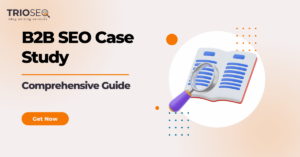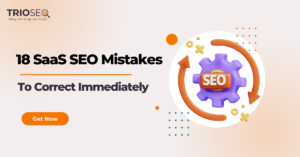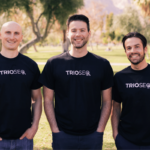Navigating the landscape of SEO can sometimes feel like traveling through a thick fog. Complex terms, intricate algorithms, and whirlwind advancements make keeping up with best practices challenging.
One concept worth clearing the haze for is link equity, a critical element in most successful SEO strategies and key to enhancing your website’s visibility.
In this comprehensive guide, we will demystify link equity, exploring its definition, significance, factors that influence it, and how you can leverage it effectively to supercharge your online presence.
If terms such as ‘Link Juice’ or ‘PageRank’ sound foreign or make you wonder if they have any actual application outside tech jargon, this article is just for you.
Let’s begin!
What is Link Equity?
One of the most significant and complex aspects of search engine optimization (SEO) you’ll encounter is link equity, often called SEO juice or link juice. It’s a concept deeply rooted in how search engines evaluate websites’ authority. However, before diving deeper into this aspect, let’s grasp what link equity means.
In its simplest terms, link equity falls under the umbrella of off-page SEO strategies and refers to the value passed from one webpage or website to another through a hyperlink. Link equity directly impacts a page’s ranking in search engine results because the amount of SEO equity received correlates positively with higher search rankings.
Nevertheless, comprehending this definition might raise another question: How is this so-called SEO juice generated?

What is Link Juice? Is it the Same as Link Equity?
The terminology used often leads to misconceptions about link juice. These terms can be interchanged; they’re two sides to the same coin when we discuss value linking.
When we use these terms synonymously throughout this article, rest assured that they imply the exact concepts within an SEO context.
Link juice is considered as the lifeblood pumped through hyperlinks from one page to another. The more authoritative your site appears in Google’s eyes due to high-quality backlinks pointing towards your pages (providing you with said ‘juice’), the better your ranking potential.
Why is Link Equity Important to Understand?
Let’s break it down: think of link equity as a currency a website or page earns when other respected sites link to it. This “currency” is highly valued in the SEO world. But why should you concern yourself with link equity?
First and foremost, it significantly influences your site’s search ranking. While keywords, content quality, and user experience are essential, link equity (or “SEO juice”) is a pivotal yet often overlooked factor in a site’s SEO strategy.
Grasping the concept of link equity can pave the way to enhanced online visibility— It guides you in structuring your website content optimally and forming valuable associations.
When a reputable website links to yours, it acts as an endorsement, boosting your credibility in the eyes of search engines. These “votes of confidence” improve your website’s trustworthiness, passing along beneficial SEO juice.
Moreover, adept management of link equity ensures a balanced distribution of “power” across your site’s various pages, preventing high-ranking pages from overshadowing others. This prevents your home page from hoarding the majority of the SEO benefits at the expense of other pages.

Factors That Determine Link Equity
Calculating link equity is multi-faceted, with various factors conspiring to generate an overall value. Interpreting link equity requires considering attributes such as relevance, quantity of links, and underlying domain authority.
Let’s dive into these factors one by one.
How is Link Equity Measured?
Like other SEO concepts, the measurement of link equity is an indirect process. Google doesn’t publicly disclose its algorithm, but SEO experts have deduced certain consensus principles. Your page’s number and quality of inbound and outbound links greatly influence its perceived worth in search algorithms.
Relevance
One paramount determinant of link equity is relevance—the extent to which the content of your linked pages corresponds to each other. Suppose you’re operating a baking blog, for example. In that case, high-quality inbound links from well-known culinary resources will pass higher SEO juice than unrelated sources like tech blogs or car dealerships.
Quantity of Links
The total count of inbound and outbound links naturally matters when calculating link equity—however, more doesn’t automatically mean better. Worthwhile backlink profiles are cultivated over time through organic growth rather than inflated numerically without discretion.
Anchor Text
Anchor text—the clickable words used to hyperlink- is another crucial aspect affecting your site’s potency in passing SEO juice. Properly utilized anchor text can give search engines additional context about the linked page; however, abusing it could lead to your site being flagged for spammy behavior.
Domain Authority
When assessing the probability of a resource offering valuable linking, domain authority must be addressed. If prominent websites with high domain authority link back to your pages, they bring substantial SEO equity you wouldn’t get from less authoritative web presences.
Indexability of the Page
Indexability—the ability for search engines like Google to analyze and list your website—directly relates to how much SEO juice passes. If your pages aren’t correctly indexable, it’s almost as if they don’t exist in Google’s eyes.
External Links on the Linked Page
Finally, let’s talk about external links. Even if a page has good link juice to pass, that is diluted if multiple outbound links are on the same page. Think of each link as a slice of pie—the more portions, the smaller each piece gets, thereby passing less value to every destination.
In conclusion, understanding these nuances makes for a practical and strategic ability to foster link equity—improving your SEO outcomes over time.
Remember, though, that link equity isn’t just about manipulating credits—it’s ultimately offering genuine value to users through relevant and reliable content, which will reward your site with increased visibility in search engines.

How to Create Link Equity
In the quest for better SEO results, the creation of link equity is an essential aspect. However, you might wonder how to create this so-called “SEO juice”? We assure you, it’s neither arcane magic nor exclusively entrusted technology!
There are three actionable steps I’ll guide you through:
- Creating keyword clusters
- Creating hub pages and articles
- Building backlinks to hub pages and articles
Create Keyword Clusters
A core part of optimizing your site involves strategic placement of keywords. This strategy opens us up to keyword clustering – a valuable technique in curating significant link equity. These clusters are related keywords with a common theme or topic.
Here’s how it works:
- Identify your primary keyword
- Research loosely related or semantically related secondary keywords
- Use these identified words strategically throughout your web content
These clustered keywords help search engines understand your page’s relevance more accurately, boosting your juice link value—and ultimately chalking up points towards increased link equity.
Create Hub Pages and Articles
A hub page serves as a central point for a specific topic on your website—a rich source for internal linking opportunities that are instrumental in advancing link equity goals. These should be comprehensive guides covering all aspects of the topic at hand.
From there, augment these hubs with supporting articles (possibly those keyword-clustered ones you’ve prepared). Ensure each piece circles back to the central hub via internal links—think spiderweb!
Build Backlinks to Hub Pages and Articles
Finally, building backlinks helps attract traffic directly toward these optimized hub pages and articles—a crucial tool in amassing worthwhile SEO link juice. However, it’s not about quantity over quality.
A backlink from a well-regarded site (hint: high domain authority) will significantly bolster your link equity over numerous links from less reputable sources. Consider guest blogging on other websites and providing valuable, share-worthy content that can naturally earn these potent backlinks.

How to Pass Link Equity
Passing link equity is a concept any beginner or pivotal professional in the SEO industry should be familiar with. We can break down this process primarily into internal linking and using external links.
Internal Linking
Managing your internal linking scheme is crucial to achieving excellent SEO juice. For the uninitiated taken aback by the thought of ‘what is link juice,’ let’s understand it as another term for link equity.
Internal linking establishes pathways, creating a roadmap that allows users and search engine crawlers easy navigation around your site.
Several points need consideration when creating such thought-out pathways:
- Structure: First and foremost, ensure you have a sensible system that flows logically from one page to another.
- Depth: Avoid deep hierarchies. Having pages three or fewer clicks away from your homepage avails them faster to potential viewers.
- Relevance: Ensure the interlinked articles share relevance to maximize information delivery.
Neatly connecting content makes it easier for search engines to review your site content while maintaining a user-friendly experience.
External Links
Not only does planning internally matter, but also harnessing power through external links contributes positively towards SEO.
When you commit valuable resources—time or finances—into producing high-quality content, websites become more prone to link back to yours, often called “natural” or “organic” linking.
It may not be within direct control like its counterpart—internal linking—but having an optimized approach helps seek opportunities:
- Strategic Networking: Building relationships with web admins and SEOs can often yield external links in return.
- Guest Posting: Authoring valuable content for other sites can see that you include backlinks to your site.
Implementing these strategies allows higher-ranking websites to direct some of their link equity SEO power onto yours, thereby significantly improving the outlook of your website’s domain authority.

Link Equity vs. PageRank – What’s The Difference?
When delving into the world of SEO, it is easy to get link equity and PageRank needing clarification. They both entail a similar concept: valuing linking in a website’s structure.
However, they are not identical elements and have their unique areas.
PageRank is a proprietary system Google uses for ranking websites on its search engine results page (SERP). Coined by Larry Page, the co-founder of Google, it classifies web pages based solely on the quality and number of their inbound links. It’s important to remember that this was one of many factors affecting your position on SERPs once upon a time, but it is less influential today.
On the other hand, link equity is an umbrella term often used interchangeably with SEO juice or link juice. This term refers to the value passed from one page to another via hyperlinks.
Unlike PageRank, which mainly contemplates the quantity and quality of inbound links alone, link equity considerations envelop multiple aspects such as relevance, anchor text, domain authority of the linking site, and indexability of the page.
Thus, we see how both these terms, while intermingled, aren’t synonymous:
- Focus: Link Equity ponders several interconnected variables, including relevancy between linking sites and anchor text optimization, whereas PageRank revolves solely around link quantity and quality.
- Scope: Compared to static algorithmic determinants like PageRank, link equity covers dynamic features based on real-time variables such as referring webpages’ cache date or external links presented, hugely affecting its fluidity.
In conclusion, grasping both concepts is vital in devising effective SEO strategies. Harnessing the distinctive features of each can facilitate a more robust approach to optimizing website structures, ultimately leading to improved rankings.

FAQs About Link Equity
Link equity, value linking, and SEO equity often have complex questions.
Let’s unravel this jumble of terms together.
Do No-follow Links Pass Link Equity?
Admittedly, no-follow links may not pass traditional link juice because these links contain an HTML tag instructing search engines not to follow or pass link equity to the site.
However, Google updated its policy towards no-follow links in March 2020, causing them to be treated more as a “hint” rather than a strict directive. This means that Google still respects a no-follow link when distributing link equity.
Can You Have Too Many Internal Links?
Yes, educating yourself on balancing quantity and quality is vital when dealing with internal linking and link juice in SEO.
While there’s no official maximum number of internal links one should have on a page, excessive linking can dilute link equity among too many pages – thereby decreasing their impact.
Ultimately, our advice is straddling the line between user-friendliness and optimizing for search engines.
Do Links From Social Media Pass Link Equity?
Most social media platforms use no-follow tags by default on their external links – subsequently restraining the traditional flow of link juice in SEO.
However, it may still be worth including these links because they improve visibility and can drive referral traffic to your website – indirectly enhancing your overall online presence.
Does a 301 Redirect Pass Link Juice?
A 301 redirect — permanent redirection from one URL to another — does indeed pass over most originated URL’s link equity (or SEO juice) onto the redirected page.
Reassuringly, research indicates that around 90% to 99% of link equity is passed through a 301 redirect.
Do Canonical Tags Pass Link Juice?
While they assist with structuring your site for SEO purposes (and indirectly improve your website’s display on SERP), canonical tags do not directly pass link juice.
However, let’s start by explaining what canonical tags are. They’re used to inform search engines that a particular URL represents the master copy of a page, thus helping prevent duplicate content issues in our SEO efforts.
However, a key point here: although recognized as equivalent by search engines, original and canonical URLs maintain their independent link equity since links going to each one will count separately.
Conclusion
Leveraging link equity is crucial for increasing your website’s visibility, beyond simply collecting backlinks to establishing a rich network of authoritative and relevant content. This strategy aids Google in evaluating the interconnectedness between various pages, positively influencing your standing on search engine results pages (SERPs) and fostering more significant organic traffic.
Though it might seem complex initially, creating keyword clusters and building thoughtful backlinks can be straightforward with an understanding of the fundamental principles. Moreover, link equity is intrinsically linked with Google’s PageRank algorithm, vital in determining page relevance and importance.
In conclusion, embracing link equity is critical. Make it a pivotal part of your approach to pave the way for SEO excellence.




![Featured Image - Mental Health Content Writing [Best Practices and Ethical Considerations]](https://trioseo.com/wp-content/uploads/2024/05/Mental-Health-Content-Writing-Best-Practices-and-Ethical-Considerations-300x157.png)
![Featured Image - Beginner’s Guide to CBD Content Writing [Tips Included]](https://trioseo.com/wp-content/uploads/2024/05/Beginners-Guide-to-CBD-Content-Writing-Tips-Included-300x157.png)

![Featured Image - [Ultimate Guide] SEO For Tech Companies That Outranks Competitors](https://trioseo.com/wp-content/uploads/2024/04/Ultimate-Guide-SEO-For-Tech-Companies-That-Outranks-Competitors-300x157.png)

![Featured Image - B2B SaaS SEO - Ultimate Guide [Strategy Included]](https://trioseo.com/wp-content/uploads/2024/04/B2B-SaaS-SEO-Ultimate-Guide-Strategy-Included-300x157.png)

